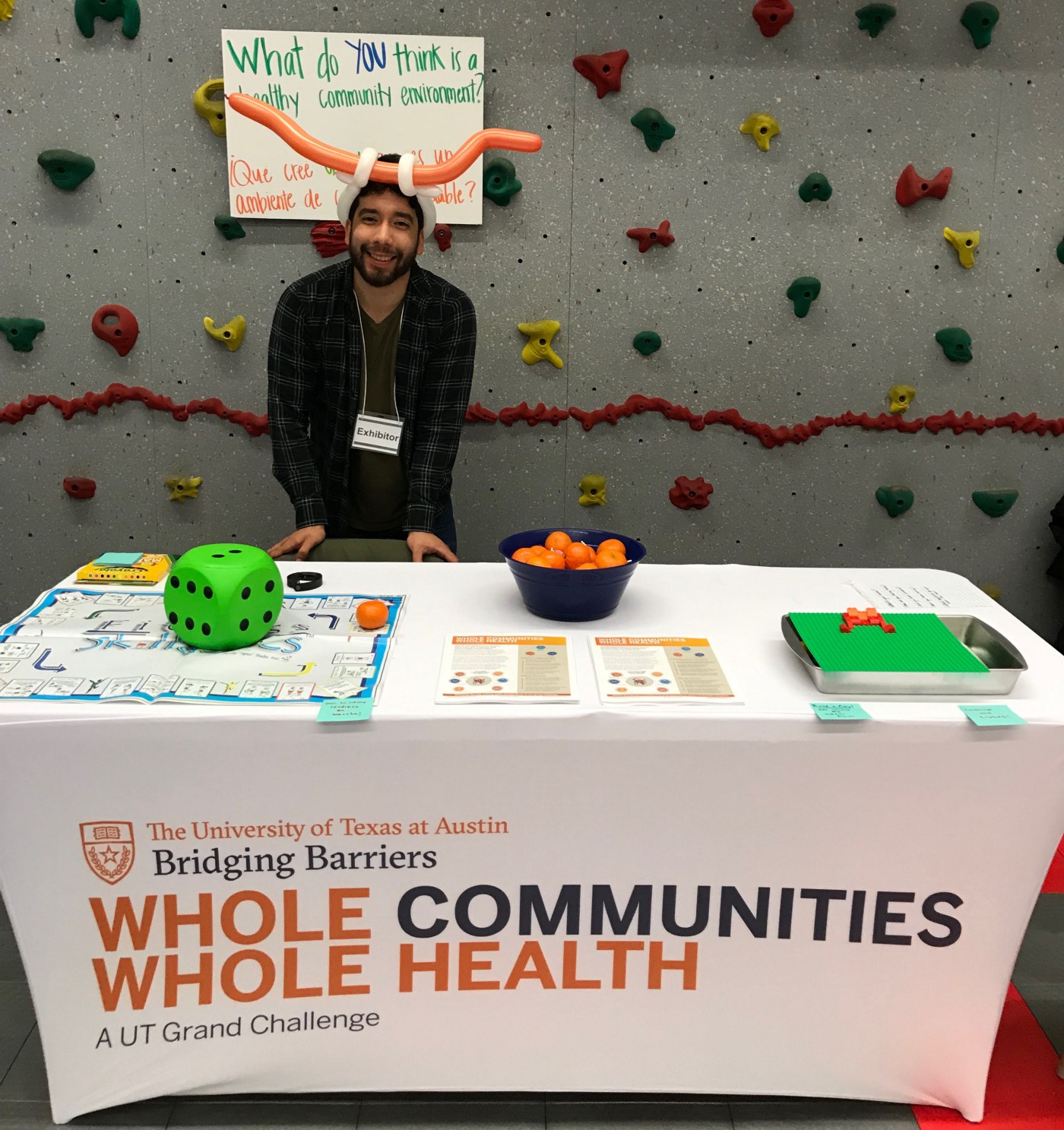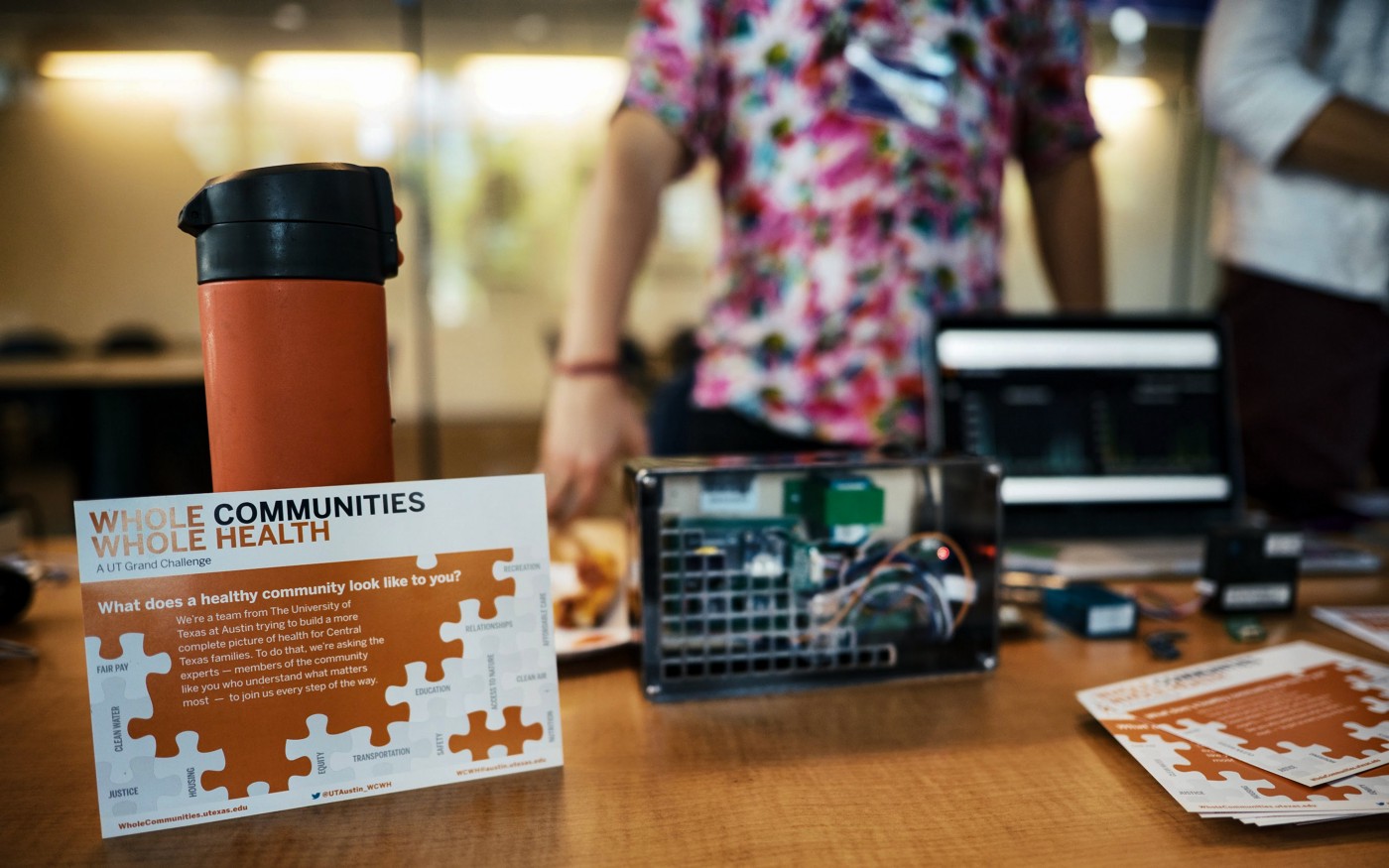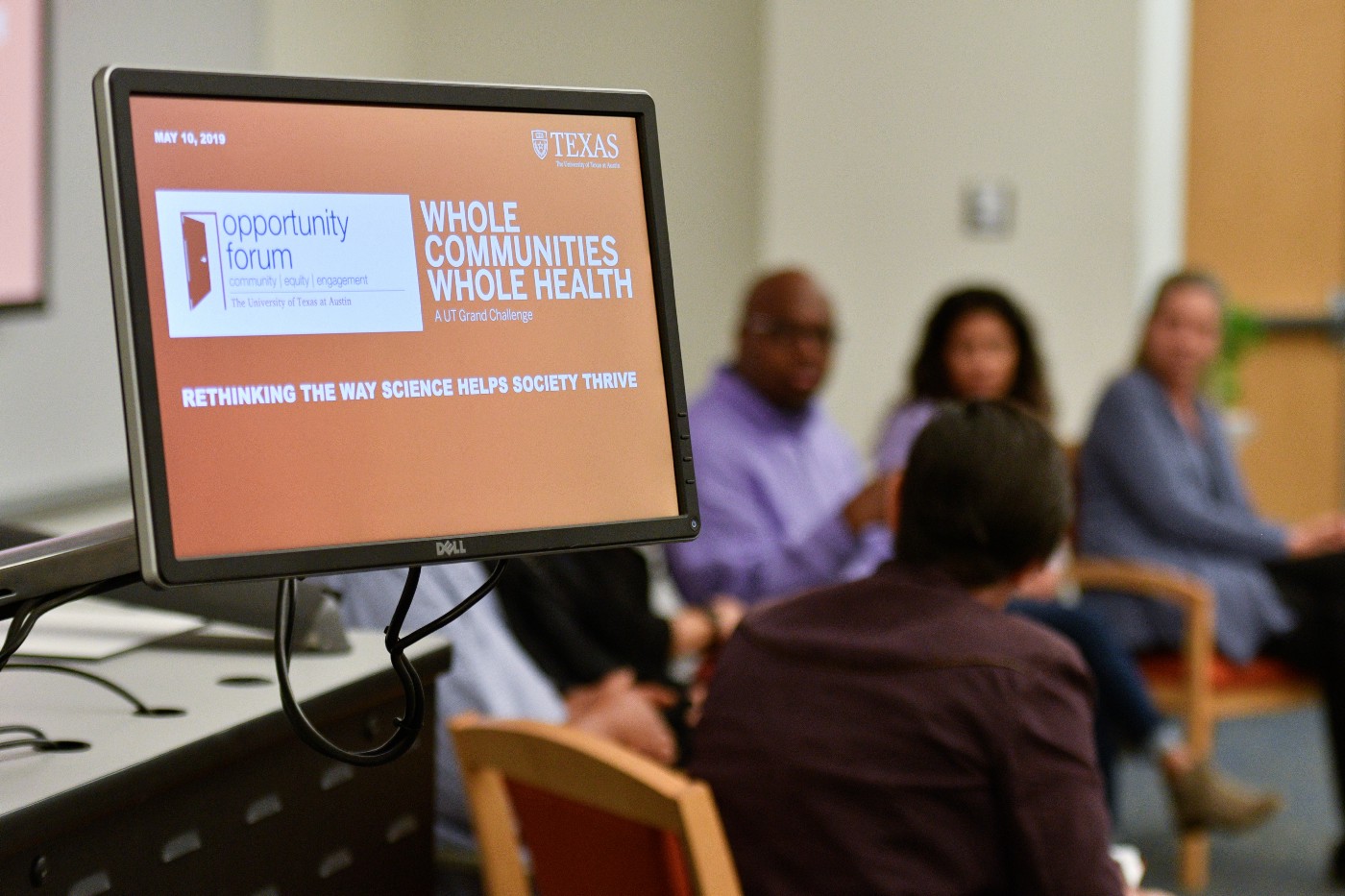David Schnyer is the inaugural faculty chair of Whole Communities–Whole Health, a University of Texas at Austin grand challenge that is rethinking “research as usual.” The team is partnering with families, schools, and community organizations in Central Texas to build a more complete picture of health. What allows some children and families who live with adversity — environmental, social, physical — to thrive? And can that resilience be shared within an entire community? A year into the quest, Schnyer reflects on the team’s progress and looks to the road ahead.
Just over a year ago, President Gregory Fenves announced the Whole Communities –Whole Health grand challenge in his State of the University address to the UT campus. Hearing the official announcement out loud made it real — and we were simultaneously thrilled and terrified. Nevertheless, our team heeded the call to work across disciplines to rethink the way science could help society thrive.
Looking back over our year of collaboration and discovery, it can be a struggle to put the results of our work in concrete terms. But at this stage in the game, the process is the product. And the process is anything but linear. In fact, I’d say the current shape of our process most closely resembles a feisty octopus.
Several active arms of our team have been working simultaneously to test the waters, using their expertise and experience to tackle different aspects of the project. While it can feel like subgroups on our team are pursuing wildly different paths, we are united in our mission to understand what helps families thrive in the face of adversity and return that information to the community members and organizations who can best put it to use.
“At this stage in the game, the process is the product.”
Community-First Thinking
Meeting our goals is simply impossible without the input and involvement of community members and partners each step of the way, which is why community engagement is one branch of this project, and it’s critical to the entire operation.
One way we’re building engagement is through our Community Strategy Team, which is made up of 10 representatives who live or work alongside families facing adversity in the Austin area. This group provides invaluable feedback and helps us check our assumptions. Its members serve as co-planners to ensure our methods and research questions are responsive to broader community needs and goals.

Additionally, we’ve been taking science on the road, co-planning and sharing resources through 25 school and community events and sharing learning activities illustrating concepts about physical, community, environmental, and social & emotional health. So far, a few areas of concern have risen to the top during our conversations: access to healthy food, water & air quality, affordable housing, and neighborhood walkability & safety.
In May, we organized a “Science in Community” event series that mirrored our community engagement philosophy. Dubbed the “3 R’s,” our efforts this year have focused on building sustainable relationships with community partners, sharing resources with community organizations, and laying the groundwork for developing long-term research partnerships.
And as a wonderful endnote to our first year, we’re also celebrating a partnership with the UT School of Nursing. Whole Communities–Whole Health will have a physical presence in their new Children’s Wellness Clinic in Del Valle, ensuring that future participants in our study will be able to connect with team members in person alongside affordable access to quality healthcare.
Putting Technology to Work
While our community engagement team was working hard laying the foundation for partnerships across the eastern crescent of Travis County, another “arm” of Whole Communities–Whole Health tested new tech devices that can help us better understand a person’s life and environment — in real time.
During the last school year, our technology team developed a blend of new tech (smartphone apps) and old tech (surveys) to get a clearer picture of the lives of over 2000 UT undergraduate students as a kind of test run. This pilot study helped us learn how to transmit, store, and handle large amounts of real-time data and allowed us to design new methods for collecting relevant information and returning that information to participants in a useful way.

In addition to collecting “lessons learned” from the student group, our environmental engineering team built and tested version 1.0 of a smart device that can be placed in the home. It’s designed to allow us to better understand some things that can influence family health, including indoor air pollution, carbon dioxide levels, humidity, and temperature.
The possibilities of what we can learn are endless, but we’re only moving forward with what to include (or exclude) from measurement with feedback from community stakeholders. Their input is infused in each step in the product development process. After one demonstration of our work, a Community Strategy Team member simply asked, “How do I turn this off?” Another wondered aloud, “What if I want to keep track of how much water I drink during the day? Could you add a ‘clicker’ for me to better record progress toward my own health goals?” Version 2.0, which incorporates responses to those notes among other important engineering improvements, is well on its way to final production.
“The possibilities of what we can learn are endless, but we’re only moving forward with what to include (or exclude) from measurement with feedback from community stakeholders.”
Closing the Feedback Loop
Finally, another arm of our team is focused on how to communicate scientific findings back to participants and community organizations who can best put them to use. In April, we held an all-day Science and Advocacy symposium where we brought together community activists, UT faculty, and legal experts to better understand how the information we generate can best be translated into actual change for affected communities.
One way we did that was by working double-speed this past summer to develop an interactive smartphone app that will translate raw data collected during our study into the type of information that can help, inspire, and be used by our community partners and participants. The app is updated in real-time and can provide both aggregate data about a community of people as well as individual level data — how do I stack up with my community? We intend to share those results soon in a science forum that will be open to the public.

Testing the Waters
To make sure all the “arms” of our project were stretching far and wide, we put out a broad call for pilot project proposals from investigators across UT Austin last spring. Three projects were selected for funding:
1. A study measuring the effectiveness of connecting physical activity to a fun, educational video game in the classroom in underserved schools;
2. A new way to measure the effects of racism and discrimination on teens; and
3. A project using new technology to better understand caregiver-child interactions as they happen in real time.
Each of these projects is contributing to our broader goals, and every detail of these pilot studies — from recruitment practices to feedback methods — offers us an opportunity to learn and adjust our plans so that we can put science in service to community. Finally, each of these pilot projects are quickly morphing into larger proposals to federal and foundation funding agencies.
What the Future Holds
As I look back over the past year, it’s exciting to see the power that comes from breaking down academic barriers and working together for a common purpose. It’s not easy — it’s called a grand challenge for a reason — but in the end, we believe the outcome will be more than worth the effort, and FAR MORE than the sum of its parts!

